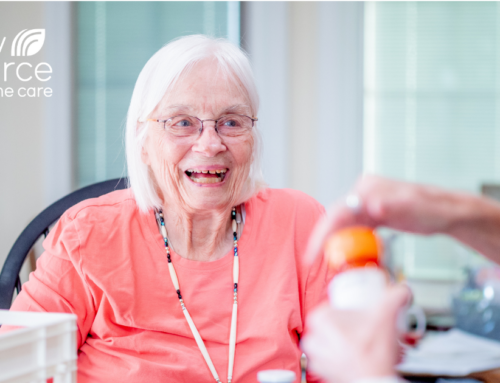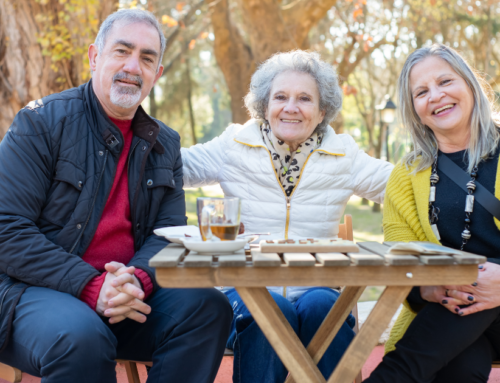Unlocking the Power of Elderly In-Home Care
In today’s fast-paced world, the elderly population often grapples with loneliness and isolation, which can negatively impact both mental and physical health, including brain volume. An effective solution can be found in the realm of elderly in-home care. Let’s explore the profound connection between elderly in-home care and the reduction of loneliness while examining its potential to counteract brain volume reduction in aging individuals.
Understanding Loneliness and Brain Volume Reduction
Before we explore the advantages of elderly in-home care, it is essential to grasp the profound connection between loneliness and brain volume reduction. Extensive research has established a direct correlation between these two factors. Loneliness is associated with heightened stress levels, increased blood pressure, and inflammation, all of which can contribute to a decline in brain volume, particularly in regions responsible for memory and cognitive function. This decline can exacerbate cognitive issues and potentially lead to conditions such as dementia.
The Loneliness Epidemic
Loneliness is not an isolated issue but rather an escalating epidemic among the elderly. For a variety of reasons, older adults often experience isolation. They may live alone, have limited mobility, or have lost friends and family members. Elderly in-home care serves as a beacon of hope for these individuals, providing a lifeline to a more fulfilling and connected life.
Elderly In-Home Care: A Personalized Solution
Elderly in-home care offers a personalized, tailored approach to address the unique needs of older individuals. Whether it involves assistance with daily activities, medication management, or companionship, in-home caregivers play a pivotal role in the lives of elderly individuals. This personalized care nurtures a sense of belonging and diminishes feelings of isolation. Caregivers become not just helpers but friends, alleviating the emotional burden of loneliness.
Enhancing Social Connections
One of the most substantial benefits of elderly in-home care is its potential to enhance social connections. Loneliness often arises from a lack of regular social interaction. In-home caregivers provide companionship and engage the elderly in meaningful conversations and activities. These interactions can reignite a sense of purpose, boost self-esteem, and reduce the negative impact of loneliness on brain volume.
Improving Mental and Emotional Health
In-home caregivers are equipped to understand the distinct emotional needs of the elderly. They can identify signs of depression and anxiety, which often accompany loneliness. With their support, elderly individuals can acquire coping strategies, receive emotional reassurance, and even engage in activities that promote mental well-being, such as cognitive exercises and memory-boosting games.
Promoting Physical Well-being
Elderly in-home care extends beyond emotional support; it also encompasses physical well-being. Caregivers can assist with medication management, meal preparation, and exercise routines. By ensuring that elderly individuals maintain their physical health, their overall quality of life can be enhanced, including their cognitive functions.
Mitigating Brain Volume Reduction
Elderly in-home care is not solely about alleviating the symptoms of loneliness; it plays a crucial role in mitigating brain volume reduction. Consistent social interaction, mental stimulation, and emotional support can help safeguard and potentially restore cognitive abilities. Some studies suggest that regular engagement and companionship can slow the progression of cognitive decline in elderly individuals.
Choosing a Brighter Path: The Transformative Impact of Elderly In-Home Care
Elderly in-home care offers a comprehensive approach to addressing loneliness, a significant issue linked to brain volume reduction in older adults. This personalized and compassionate caregiving delivers social connections, mental and emotional support, and opportunities for physical activity, all of which contribute to an improved quality of life. By prioritizing the emotional and physical well-being of elderly individuals, in-home care proves to be a potent tool in countering loneliness and its adverse effects on brain health.
If you have an elderly family member or loved one who is struggling with loneliness, consider exploring elderly in-home care options. This choice can make a remarkable difference in their life, improving their mental and emotional health while also aiding in the preservation of their cognitive abilities. Loneliness should not be a burden they bear alone; in-home caregivers are here to provide the support and companionship they need. It’s a step toward a happier, healthier, and more connected future for your loved ones. Family Resource Home Care is here for all elderly in-home care needs in Washington, Oregon, and Idaho, ready to offer the compassionate care your loved ones deserve.
Sources:






